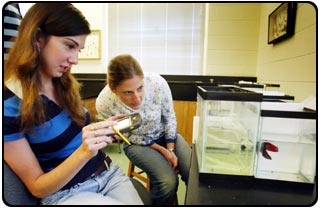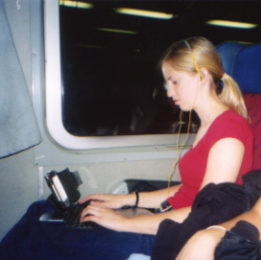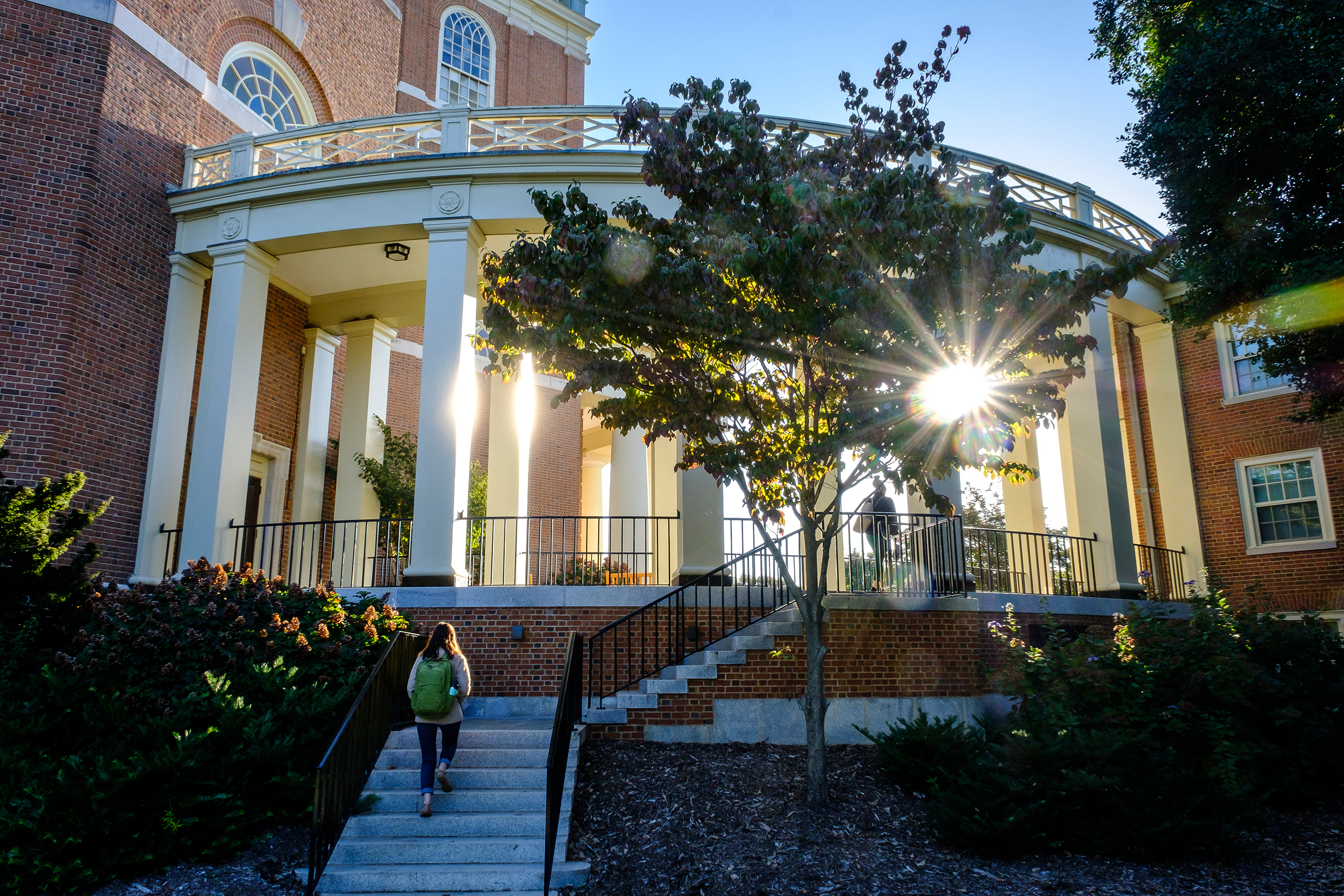Hand-held computers, programs enhance university learning, aid in research

Lyndsay Zotian ’05, on the left with the handheld computer, and Elizabeth Reynolds ’03, working on an animal behavior experiment with betta fish in a lab room in Winston Hall.
Hand-held computers and software programs written specifically for them by Wake Forest University continue to find new uses in Wake Forest classrooms and research.
Students in Professor of Biology Bill Conner’s summer class on animal behavior used hand-held computers and a software program created specifically for the course that improved the speed and accuracy with which students were able to log animal movements. Using their hand-held computers, other Wake Forest students traveled throughout Europe this summer collecting data and administering surveys for Associate Professor of Education Bob Evans’ summer course in education. And this fall, students in Associate Professor of Mathematics Hugh Howards’ calculus class will use hand-held computers outfitted with custom practice exercises and calculus reference materials.
Using hand-held computers to enhance classroom learning and research is one of the newest steps in the university’s ongoing efforts to incorporate technology into the learning process. The university started providing laptops for students in 1996 and has since remained at the forefront of developing academic technology. The university’s Information Systems (IS) research and development staff works with faculty members to develop software that matches the particular needs of their subject.
“We are always looking for ways that technology can be used to make the classroom and college learning environment more beneficial for students,” said Anne Bishop, director of research and development in IS.

Alyssa Biber uses her hand-held computer to record data for her education class while traveling on the train in Europe.
Classes in other departments, including health and exercise science and foreign language, have also experimented with hand-held computer use in the classroom. Last fall, the university piloted a hand-held computer program that allowed students to submit questions to their professor during class, and let professors submit instant quizzes to their students and control presentations from anywhere in the room. That software, now called ClassInHand, will also be used in some classrooms this fall.
For Conner and his students, hand-held computers made an otherwise clumsy and imprecise research method easier and more accurate.
“Behavior in animals happens very rapidly,” Conner says. “This device makes it possible to log some behaviors that otherwise might have been missed.”
Two of Conner’s biology students plan to use the program to study bats and moths this fall, and he will use the same program when he teaches animal behavior in the spring. Handhelds are also being used by David Anderson, associate professor of biology, in his research of birds on the Galapagos Islands.
In addition, this fall the university will debut Technology Quarters, themed university housing in Luter Residence Hall. Freshmen in this hall will live together to learn about new technology, share technical expertise with one another and occasionally help the university test new equipment that is being considered for use on campus, including hand-held computers and software programs.
Download Text File
WFU News Website Search
Categories: Experiential Learning, Research & Discovery
Media Contact
Wake Forest News
media@wfu.edu
336.758.5237



